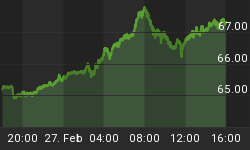Turf wars, or battles over jurisdiction, are the bane of America’s police, intelligence and security agencies. Something as benign as a doorbell is now throwing a new element into this conflict.
Considering the way things are developing, soon we could be watching a jurisdiction dispute between local police and… Ring Doorbell agents.
Ring, whose stated purpose is to “reduce crime in neighborhoods”, has in the course of only a few years gone from “Shark Tank” reject to industry leader since it was bought out by Amazon.
In 2013, investors on ABC’s “Shark Tank” had a chance to be early backers of the business. Ring founder and CEO Jamie Siminoff appeared seeking a $700,000 investment in exchange for 10% of his company, then called Doorbot.
But they missed out.
“Shark Tank” investor Kevin O’Leary later said it was “probably the biggest miss” in the show’s history.
Then last year, the company was bought by Amazon for reportedly $1 billion, as part of the e-commerce giant’s move to expand to the smart home market.
Ring has a host of competitors.
Just two years ago, the Ring device virtually owned the market with a 97% share and some 3 million users. Since then, several companies that focus on consumer-grade products have emerged, including Google’s Nest, Arlo, Simplisafe and Wyze.
But a few things set Ring apart.
For one thing, it offers tools for police, such as the Law Enforcement Neighborhood Portal, as well as Neighbors.
When the police department partners with Ring, officers are required to promote its products. In exchange, they get access to Ring’s Portal, an interactive map that allows police to request camera footage directly from residents without obtaining a warrant.
The company’s Neighbors app lets the user post video and photos of suspicious activities, crime and more in the neighborhood.
Vice reported in August that one California police department started a “Ring Reward Program,” where residents who reported crime and promised to testify in court would receive Ring surveillance camera.
Related: Precious Metals See Record Inflows
With that being said, more than 600 police forces across the country have entered into partnerships with the company, allowing them to quickly request and download video captured by the cameras.
In the latest deal, which is a significant one due to the holiday season, Ring has partnered with the police department in New York to help combat porch pirates, currently “the No. 1 crime spree in the county”.
The Nassau County Police Department on Long Island said it aims to catch package thieves with the help of video footage from neighborhood smart doorbells.
However, all that is not sitting well with some activist groups and even the lawmakers.
To say it sounds like a conflict of interest at best and unconstitutional at worst is an understatement.
More than 30 privacy and consumer advocacy groups are urging local legislators to intervene in Ring’s partnerships with law enforcement.
In a joint letter published in October, groups asked lawmakers to end local police partnerships with Ring, saying that the video footage could be misused, citing the fact that employees at Amazon have access to the footage, and expressing concerns about racial profiling.
“With no oversight and accountability, Amazon’s technology creates a seamless and easily automated experience for police to request and access footage without a warrant, and then store it indefinitely,” they wrote.
The letter comes just weeks after Sen. Ed Markey, D-Mass., released an investigation into Ring's partnership with police departments and slammed the policies as an "open door for privacy and civil liberty violations”.
This isn’t Amazon’s first rodeo with the police.
Last year, it caused a furor when marketing its facial recognition product, Rekognition. Nearly two dozen Amazon shareholder groups to pressured CEO Jeff Bezos to stop selling it out of concern that the technology would pose yet another threat to our privacy and help the government cement its mass surveillance capabilities.
Even though some police departments ditched the program over technical difficulties rather than respect for privacy, there is no evidence that Amazon listened to its shareholders.
In the end, you might buy Ring because you like all the fun new tech. You might buy Ring because it’s convenient and makes you feel safe. You might buy Ring just because you order a lot of Amazon packages and they keep disappearing. But what you might actually be buying is an end to civil liberties. It’s a slippery slope, indeed.
By Anes Alic for SafeHaven.com
















